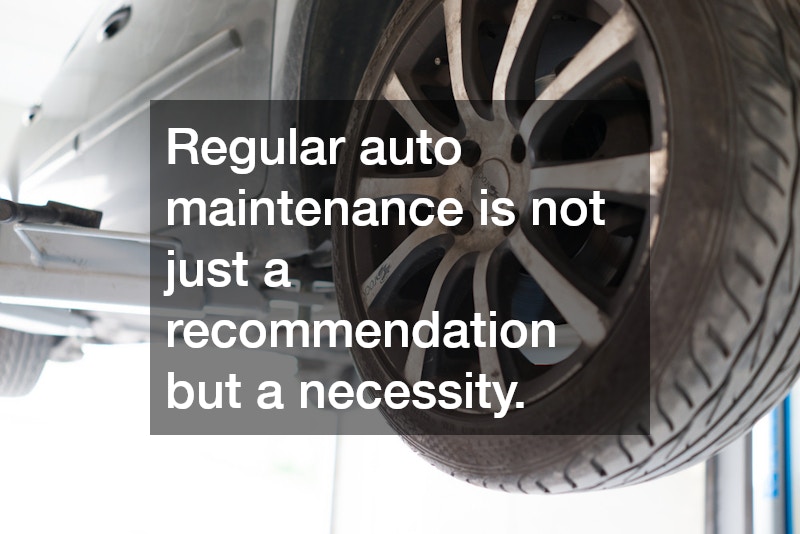Owning a vehicle is a significant investment and maintaining it adequately is essential to ensure its longevity. With regular auto maintenance, you can avoid costly repairs and keep your vehicle running smoothly for years. This article will explore essential auto maintenance tips to extend the life of your vehicle.
In this guide, we’ll break down several maintenance tips that vehicle owners should regularly consider. The importance of these tasks cannot be overstated as they form the foundation for a long-lasting and efficient vehicle.
Let’s delve deeper into specific areas of auto maintenance crucial for extending your vehicle’s life.
Regular Oil Changes
One of the most important aspects of auto maintenance is changing your car’s oil regularly. Engine oil acts as a lubricant, ensuring that all the parts of the engine work smoothly without friction. Over time, oil can become dirty and less effective, hence the need for regular replacement.
Experts generally recommend changing the oil every 3,000 to 5,000 miles, depending on the make and model of your vehicle. Regular oil changes help prevent engine wear and tear, which is crucial for extending the lifespan of your vehicle. Neglecting this task can lead to more severe engine problems, which might be expensive to repair.
During an oil change, it is also advisable to replace the oil filter, as it traps dirt and debris from circulating in the engine. Regular checks and replacements ensure that your vehicle operates efficiently. Always consult your vehicle’s manual or a trusted mechanic to ascertain the best oil type and change interval for your car.
Tire Maintenance
Tires play a crucial role in vehicle performance, safety, and fuel efficiency, making tire maintenance an essential aspect of auto maintenance. Keeping your tires properly inflated helps in achieving optimal fuel efficiency and extends the tread life. Under-inflated tires can lead to increased fuel consumption and premature tread wear.
Regularly inspect your tires for any signs of damage such as cracks, bulges, or punctures. Rotating your tires every 5,000 to 7,000 miles helps promote even tire wear, thus extending their life. Alignment and balancing are also important to avoid uneven tread wear and to ensure the vehicle rides smoothly.
Monitoring the depth of the tire tread can prevent dangerous driving conditions, especially in adverse weather. A simple trick to check the tread is using the penny method; if you can see the top of Lincoln’s head after inserting the coin into the tread, it’s time for new tires. Proper tire maintenance cannot be overlooked, as it directly impacts safety and performance.
Brake System Checks
The brake system is one of the most critical safety features of your vehicle, and maintaining it is vital for safe driving. Auto maintenance should include regular checks of your brake pads, rotors, and fluid levels. Worn-out brake pads or low fluid levels can dangerously compromise braking performance.
Pay attention to any unusual noises or sensations when applying the brakes, as these might indicate wear and need for repair. Common signs include squeaking, grinding sounds, or a spongy brake pedal. Timely replacement of brake components ensures that the braking system functions efficiently.
Regular flushing and replacement of brake fluid help maintain effective braking pressure. Brake fluid can become contaminated over time, leading to reduced braking efficiency. Always consult a professional mechanic if unsure about the condition of your braking system.
Inspecting Belts and Hoses
As part of comprehensive auto maintenance, inspect the condition of belts and hoses regularly. These components are essential for the proper functioning of various vehicle systems, such as cooling, power steering, and alternator. Over time, belts and hoses can wear out, leading to leaks or system failures.
Look for signs of wear, such as cracks, fraying, or glazing on the belts. A broken belt can affect crucial systems, potentially causing your vehicle to overheat or fail. Replacing worn-out belts and hoses before they fail can prevent breakdowns and extend the life of your vehicle.
Regular auto maintenance is not just a recommendation but a necessity for the sustained performance and longevity of your vehicle. By adhering to a consistent maintenance schedule, you ensure safety, prevent costly repairs, and enhance the vehicle’s resale value. The tips discussed in this article, from oil changes to inspecting belts, are pivotal in extending your vehicle’s lifespan.
.





